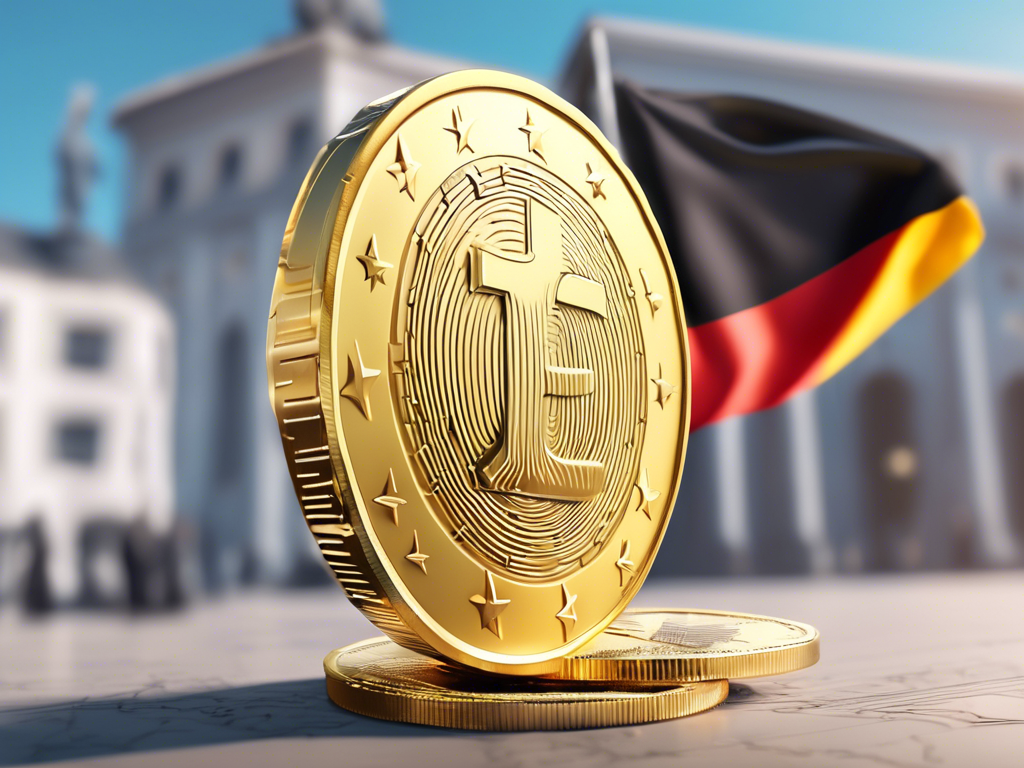Exploring the German Perspective on the Digital Euro 🇪🇺
The concept of a digital euro is gaining traction in Germany, with a recent survey shedding light on the attitudes and knowledge gaps among the general public. Let’s dive into the key findings and insights from the survey to understand the German perspective on this emerging payment method.
50% of Respondents Are Open to Using the Digital Euro
– A representative survey conducted by forsa on behalf of the Deutsche Bundesbank revealed that 50% of respondents are open to using the digital euro as an additional payment option.
– Even those unfamiliar with the digital euro expressed openness to adopting this new payment method, highlighting potential acceptance among a broader audience.
– However, only 41% of respondents had encountered information about the digital euro, indicating a significant gap in awareness and education.
– Privacy concerns emerged as a key issue, with over three-quarters of respondents emphasizing the importance of protecting their privacy in digital transactions.
– The planned offline version of the digital euro, designed to mirror the privacy protection of cash transactions, was deemed crucial by 59% of respondents.
Privacy Protection and European Infrastructure Are Key Concerns
– Privacy protection is a significant focus in the development of the digital euro, with assurances from officials that user data will be safeguarded.
– Eurosystem central banks have reiterated their commitment to prioritizing privacy protection and minimizing data collection in digital euro transactions.
– The majority of respondents (72%) stressed the importance of establishing a European infrastructure for the digital euro, ensuring independence from global events and decisions.
15% of Respondents Misunderstood the Role of Digital Euro
– The survey revealed misconceptions among some respondents regarding the digital euro’s role, with 15% believing it would replace cash and 12% anticipating the phasing out of physical currency.
– Burkhard Balz debunked these notions, affirming that cash remains a fundamental product of central banks and will continue to coexist with the digital euro.
– The European Central Bank’s initiative to develop a digital euro aims to enhance electronic payment options while maintaining the presence of physical cash in circulation.
Progress Towards the Digital Euro Implementation
– Following extensive research and planning, the European Central Bank advanced to the next phase of preparing for the issuance of the digital euro on October 18, 2023.
– The ECB’s project aims to explore design and distribution models for the digital euro, ensuring a seamless transition to this modern payment instrument.
Hot Take: Navigating the Path to Digital Payment Evolution 🌐
As the digital euro gains momentum in Germany, addressing knowledge gaps and privacy concerns will be crucial in fostering widespread acceptance and adoption. By prioritizing education, privacy protection, and infrastructure development, the transition to a digital currency ecosystem can proceed smoothly, catering to the evolving needs of consumers and businesses alike.





 By
By

 By
By


 By
By